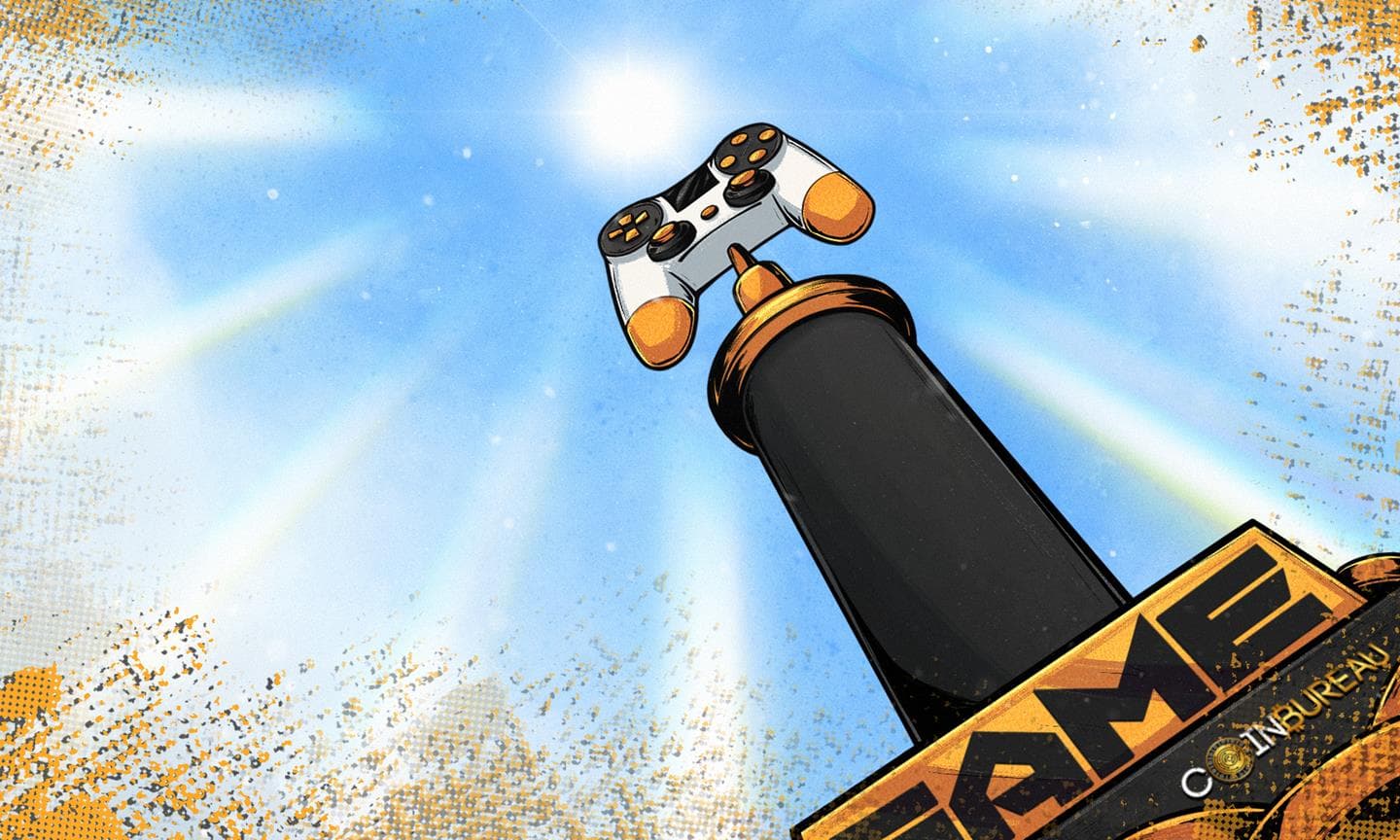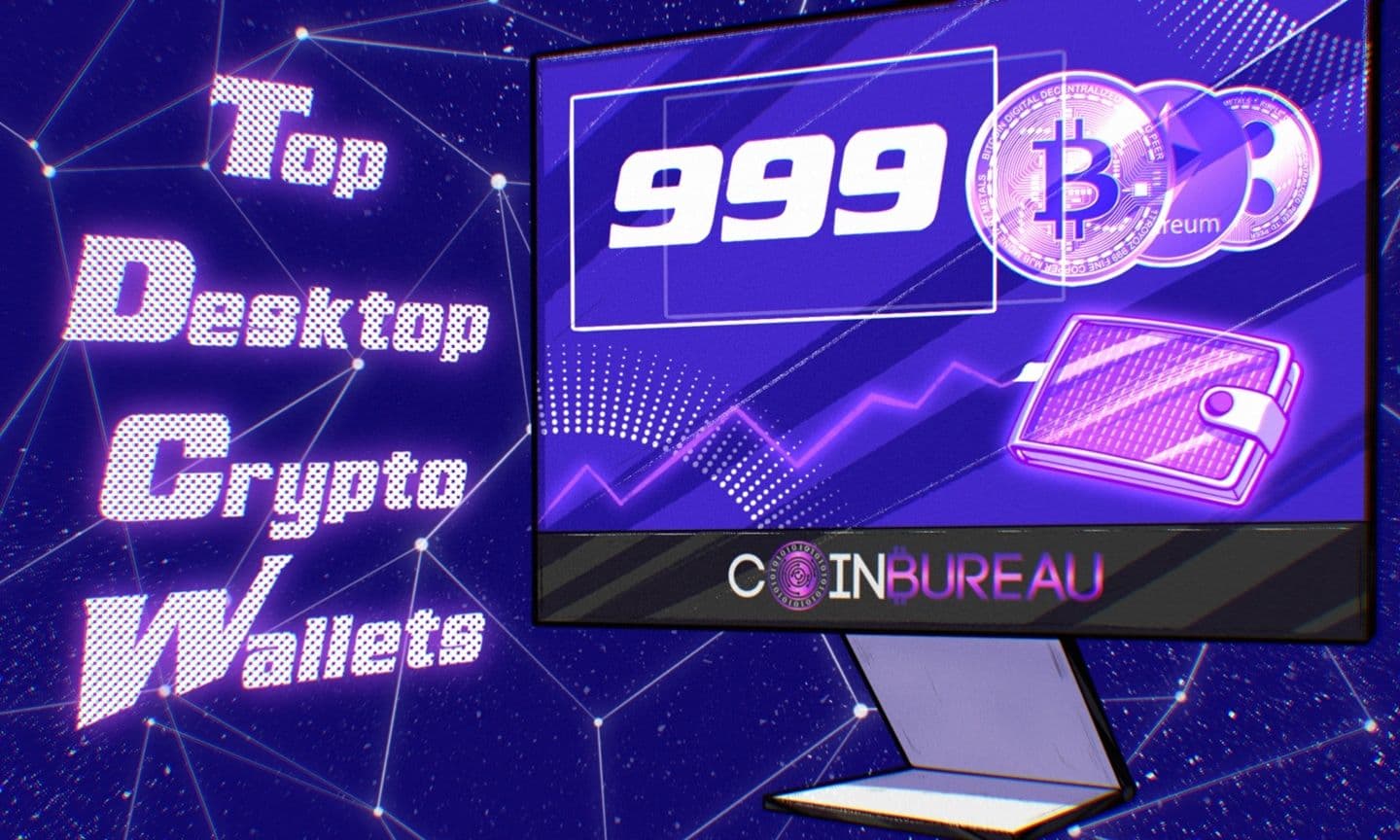Adoption is a word you’ll hear on an almost daily basis in the crypto space. It can though mean different things to different people. For some, it’s all about just getting more people into buying crypto and thus pushing the prices up. For them, adoption means nothing more than higher profits.
To those of us who aren’t solely focused on enriching ourselves, it’s a broader term. We want to see crypto continue to take bigger and bigger chunks out of the traditional financial system. We want to see it loosen the grip that fiat currencies and banks have over our everyday lives. To us, crypto is more than just an asset class: it’s a medium of exchange that we can use on our own terms.
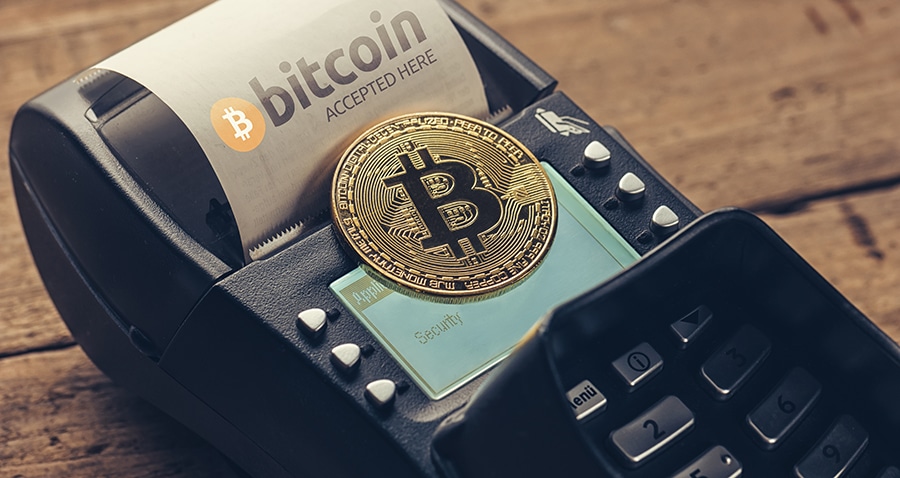 This is what adoption looks like. Sort of. Image via Shutterstock
This is what adoption looks like. Sort of. Image via ShutterstockThere has been no shortage of headlines over the last few years about businesses waking up and smelling the crypto. An increasing number of stores and companies now accept payment for goods and services in BTC and other cryptos, allowing us more financial freedom than ever before. But all the hype around being able to buy your morning latte using crypto (back when we were able to do that sort of thing) has hidden another important area of adoption from view.
We’re spending more of our lives online, especially as lockdowns drag on. Many of us are spending some of that time playing games online too and it’s here that crypto adoption finds another frontier. Blockchain-based games are taking off in popularity and they’re using crypto to power their in-game ecosystems. Transactions made within these games are going to play an increasingly major role in driving adoption of crypto forward in a whole other direction.
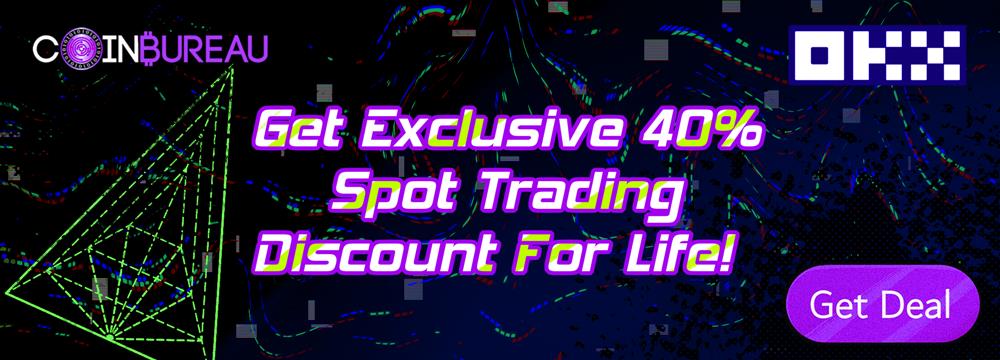
What is a Blockchain Game?
There are two main features to blockchain games. We’ve already covered the first: the integration of cryptocurrency for in-game payments and/or the use of non-fungible tokens (NFTs) within the games themselves. NFTs allow gamers to own unique assets within games that can be traded with other players or transferred across platforms. A good example would be a rare weapon in Fortnite.
 Games on blockchain: a world of possibilities. Image via Shutterstock
Games on blockchain: a world of possibilities. Image via ShutterstockThen there’s the nature of blockchain itself: an incorruptible database which can store information about who owns which items and what they are worth. This would enable them to be traded safely, with buyers having confidence that their items are genuine and sellers have a record of the sale being finalised. Smart contracts can be used to make the whole process seamless and entirely transparent.
There are also consequences for game data too. By using blockchain, players’ progress can be tracked and cheating made all-but impossible. The days of nefarious gamers hacking extra skills or unlocking higher levels could be numbered.
Blockchain is opening up a whole new world of possibilities for gamers. Not only is it allowing them to immerse themselves even more in the games they play, but it is also giving many the opportunity to monetise their hobby. Great players can earn tangible rewards for their skills, while those with an artistic leaning can design and sell desirable, collectable in-game items. The potential is vast and the game devs are only just getting started.
The Best Blockchain Games
As you can imagine, the blockchain gaming space is growing fast, with new titles coming out all the time as demand increases. As with regular gaming, there are good, bad and indifferent blockchain games, catering to all sorts of tastes. But we’re not interested in those. We’re concerned with the titles that are setting the pace for the rest of the sector and laying early claim to classic status.
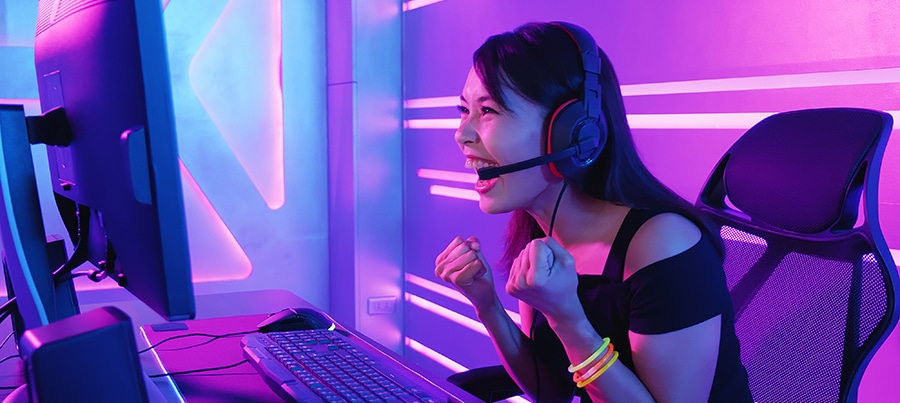 You’re welcome. Image via Shutterstock
You’re welcome. Image via ShutterstockSo, here in no particular order are ten of the blockchain games we’re most excited about. It’s a tough job playing a whole heap of games to find the best ones, but someone’s gotta do it.
1. The Sandbox
This virtual world platform has been around since 2012 as a regular iOS, Android and Windows game, but pivoted towards blockchain when bought by Animoca Brands in 2018. The game is all about the creativity of its users and the content they generate all contributes to the ever-expanding Sandbox multiverse.
The Sandbox takes its lead from games like Minecraft and Roblox, but seeks to concentrate power and ownership in the hands of its users rather than the developers. It uses NFTs to enable users to own their creations and reward them for building and maintaining the game’s ecosystem.
Users can create in-game objects through the VoxEdit function and then sell them in the Sandbox’s online marketplace. The game makes use of three separate tokens to allow them to do this. SAND is an ERC-20 token and the main in-game currency which functions as ‘the basis for all of the ecosystem’s transactions and interactions.’
LAND consists of NFTs representing digital real estate which can be bought to develop as the player chooses. If the LAND is developed successfully it can be rented out or sold at a profit.
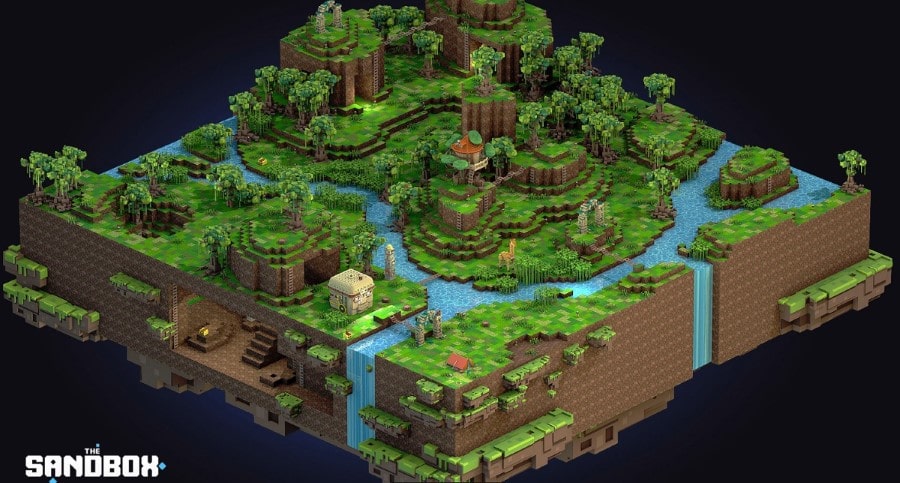 A small corner of the Sandbox multiverse. Image via VentureBeat
A small corner of the Sandbox multiverse. Image via VentureBeatFinally, there are ASSETS: these are player-created ERC-1155 tokens that can also be traded in the marketplace and represent the content generated by the users.
Recent include expanded LAND sales, like the BharatVerse LAND Sale Raffle, highlighting ongoing growth and community engagement. The game emphasizes social interaction, with features for attending events and expressing through avatars, indicating a shift towards a socially-driven experience. Additionally, the diversity in user-generated content has broadened(the Game Maker, for instance), showcasing a variety of interactive experiences and games. These developments reflect The Sandbox's commitment to fostering a dynamic, creative, and community-centric virtual world.
SAND tokens are available on a number of exchanges, but if you use Binance then you can take advantage of Guy’s 20% trading discount there. If you want to buy LAND then you’ll first need to load up on SAND and buy through one of the presales that take place on the game platform itself. ASSETS can also be bought here.
If you want to learn more about The Sandbox, we have an in-depth Sandbox review that goes into a lot more detail, as well as giving a broader overview of the tokenomics of SAND.
2. The Six Dragons
The Enjin platform is fast becoming a hub for blockchain game developers, as it builds ‘a product ecosystem that will help humanity create advanced virtual economies through the power of blockchain technology.’
It offers a platform on which to build blockchain games and mint the tokens that power them, while also offering wallet and marketplace services too. Its native Enjin Coin (ENJ) is an ERC-20 token that backs the in-game assets issued by games on the platform, thus allowing them to be freely traded.
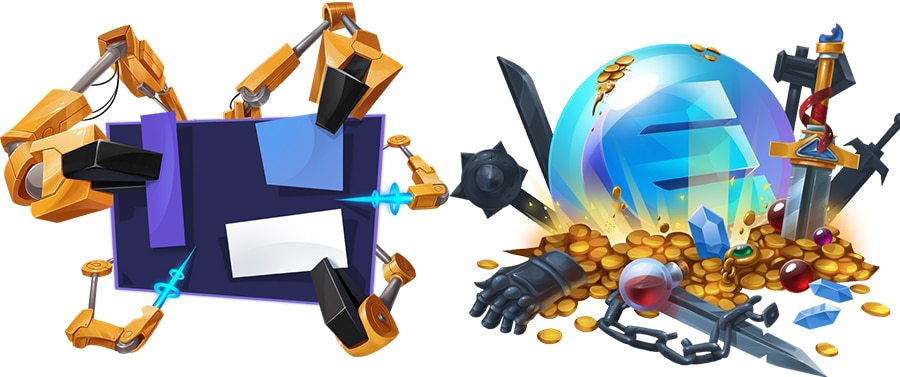 Enjin: powering development. Image via Enjin
Enjin: powering development. Image via EnjinOne of the most exciting games on the Enjin platform has to be The Six Dragons, a fantasy-themed open-world RPG. The game offers a vast 256 km2 fantasy world, where players can engage in epic battles, farm materials, craft over 300 unique items, and trade items with other players and improve their arsenal using powerful enchants.
As with The Sandbox, the emphasis here is all on the user. The game prides itself on being shaped and run by its players and thus truly decentralised in the best blockchain tradition. The fantasy genre is a pretty well-worn one in both traditional and blockchain gaming, but The Six Dragons looks amazing and gives players plenty of scope to explore the game’s world while acquiring and trading a wide variety of items.
The ability to design and craft items to then use or sell has to be earned, thus rewarding players who participate in the game and help grow its ecosystem. For users wanting to buy Enjin Coin to use in the game, Binance is once again the best bet, though other exchanges do support it.
The Six Dragons has introduced several new features that further integrate blockchain technology into its gameplay, enhancing the overall experience for players. Key developments include:
- Jumpnet Integration: This integration stabilizes the game's economy and benefits from near-zero transfer fees. It allows for rewarding Governance NFT holders with weekly earnings and building exchange mechanisms for new tokens (eTSDT and gTSDT).
- New Game Features: The game has added new elements like hunting animals for loot and a cooking station in villages, providing buffs to players.
- Weapon & Armor Durability: A new system will be introduced where weapons and armor decay after each battle, based on their level and rarity. This adds a realistic aspect to the gameplay, requiring players to repair their gear.
- New Villages and Quests: Villages in the game will undergo a redesign, each with its own aesthetic tied to its world position. This revamp will be accompanied by new story-driven quests, encouraging players to explore more of the game world.
3. Star Atlas
Star Atlas is a blockchain game that already has a playable portion of the game available as players anxiously await the full release. The only problem is that this game is so epic and massive, with its own society, economic system, and cinematic-like gameplay graphics, that it likely won't be fully released within this decade!
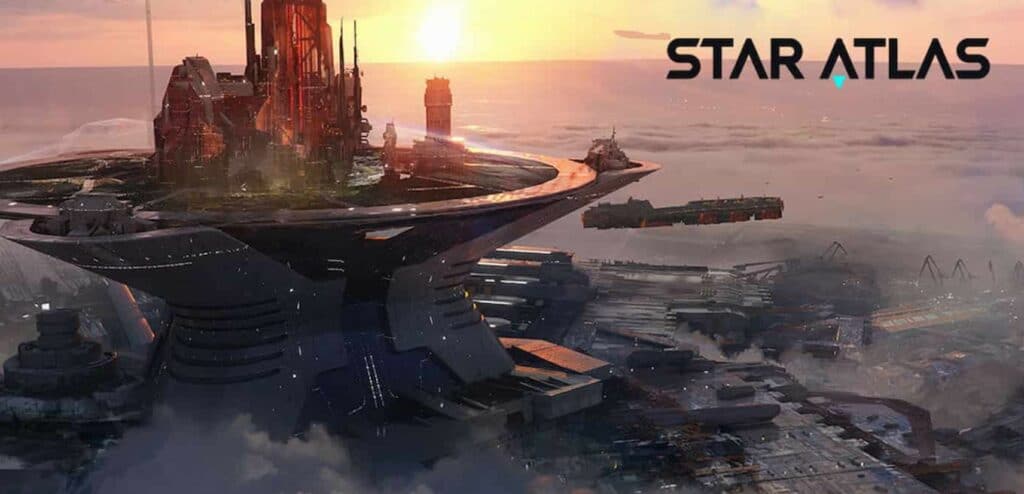 Star Atlas is Working with Unreal Engine 5 to Provide Cinematic-like Gameplay Graphics Image via Solana.com
Star Atlas is Working with Unreal Engine 5 to Provide Cinematic-like Gameplay Graphics Image via Solana.comthe game is launching in stages with mini-game releases already out that allow players to get a taste of what to expect as they can already set up their profiles, choose a faction, purchase and sell ships and equipment NFTs on the marketplace, and do some exploring in their spaceships.
Star Atlas is a next-generation open-world metaverse project built on the Solana network one of the most ambitious projects that the gaming industry has ever undertaken. It is more than just a blockchain gaming metaverse; it is an entirely new, fully immersive virtual solar system with multi-dimensional play-to-earn mechanics and a robust, fully functioning economy. We can barely scratch the surface of the mind-blowing potential this project has in this article, which is why we wrote a dedicated Star Atlas review where you can learn more.
The Star Atlas ecosystem has two tokens, ATLAS and POLIS. One is the in-game currency and the other one acts as a governance token. Both tokens are available on OKX.
4. Sorare
Collecting football cards briefly consumed my life when I was a kid and I know plenty of people who’ll admit to spending way too much time playing fantasy football as adults. Sorare has brought the two together for the blockchain generation and some of their collectable digital cards have already changed hands for eye-watering sums of money.
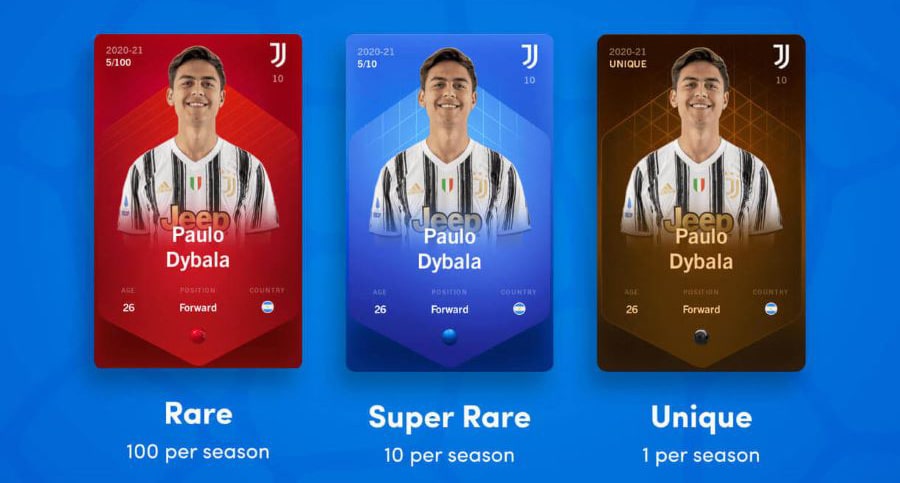 Sorare cards by rarity. That unique card is gonna cost you… Image via Sorare
Sorare cards by rarity. That unique card is gonna cost you… Image via SorareGamers assemble a team of five players by buying cards at auction on the Sorare marketplace, or by trading them with other payers. Cards are valued according to the players on them and by the numbers produced. Each player has only one unique card produced per season, which makes them the most valuable type to own. One of the season’s unique card for Paris Saint-Germain’s Kylian Mbappe was bought for over €55,000, which should give you an idea of the levels of engagement of some gamers.
Your fantasy team of five players will then win points depending on the performance of those players in real-life games. Gamers can win more cards or pay-outs in ETH if their team does well. ETH functions as the in-game currency, though gamers can fund their accounts with fiat as well.
As with any self-respecting blockchain game, the potential to earn from playing is there, either by selecting an all-conquering team or by buying astutely and selling those cards when they’ve gone up in value.
Blockchain also ensures that gamers can trade their card with confidence, knowing that they’re not buying fakes and having access to the full history of every card on the marketplace. You can thus see what the card you are looking at has sold for previously, helping you decide whether or not to invest. While some cards may change hands for a footballer’s weekly wage, there are plenty of cheaper options for those looking to start small.
Sorare has expanded its fantasy sports offerings, now encompassing not just football (soccer), but also the NBA and MLB. This evolution reflects Sorare's commitment to reimagining fantasy sports through digital collectibles. Players continue to build their dream teams by scouting and collecting digital player cards, setting lineups, and competing in competitions based on real-life player performances.
Check out Guy's video where he walks you through how to set up and use Sorare
5. Big Time
Big Time is a free-to-play, multiplayer action RPG that offers a unique blend of fast-action combat and adventure through time and space. A key aspect of Big Time is its integration of the $BIGTIME Token, the main cryptocurrency fueling the game's economy. This token plays a central role in various in-game transactions and activities. Players can now engage in crafting, using $BIGTIME and other materials to create and upgrade a range of weapon collectibles. This feature adds a layer of strategy and personalization to the gameplay.
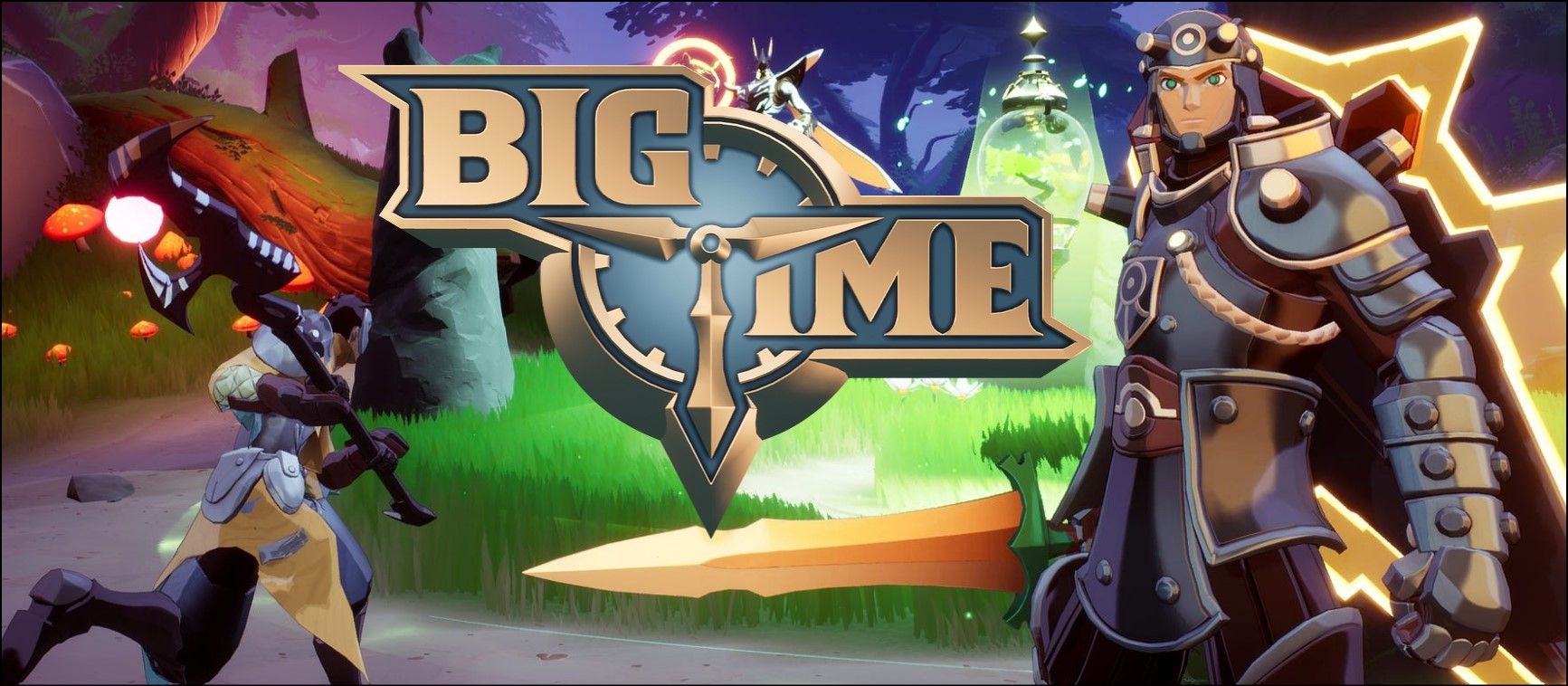 Big Time Crypto Game
Big Time Crypto GameThe game has also launched new adventure instances, providing players with fresh content and challenges. Players can now rent out their Workshops and SPACE, adding an economic strategy element to the game. Additionally, the introduction of Prestige Portals offers special adventure instances with unique challenges and rewards.
Big Time has also implemented a system where players can invite friends using an Open Loot access code, climbing the $BIGTIME leaderboard and earning rewards. The ability to open Mystery Boxes, which contain items for crafting, further enriches the gaming experience. These developments showcase "Big Time's" commitment to evolving its gameplay and economic model, making it a standout title in the blockchain gaming space.
You can learn more about this exciting crypto game in our dedicated Big Time Review.
6. Illuvium
Illuvium is a groundbreaking Interoperable Blockchain Game (IBG) that has redefined the landscape of crypto gaming. It stands as a multifaceted universe comprising an open-world exploration game, a city-builder, and an autobattler, all built on the Ethereum blockchain. This diverse gaming ecosystem offers players a graphically rich sci-fi adventure set across seven alien landscapes, where they can capture Illuvials, mine resources, and help their crash-landed crew thrive.
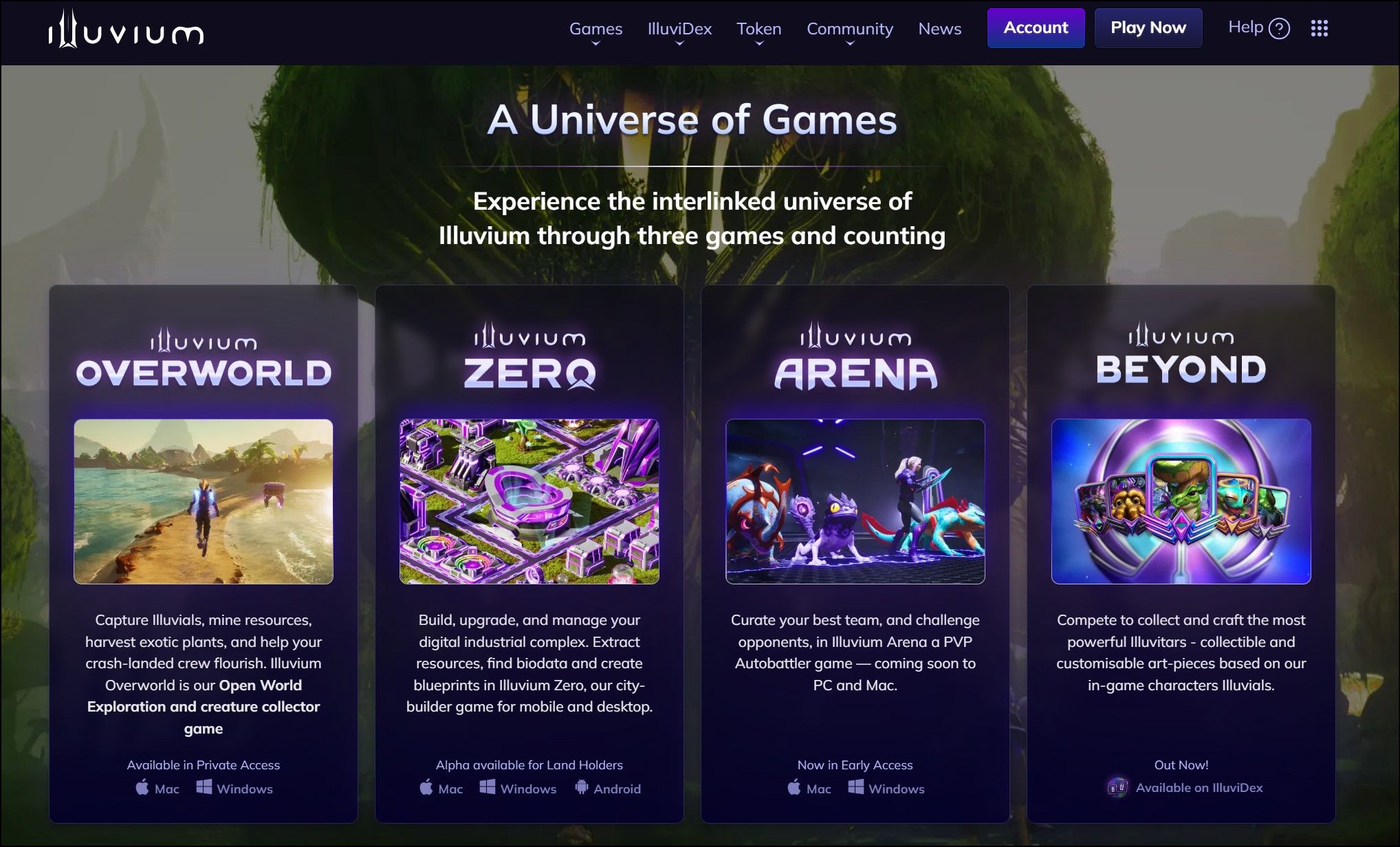 Illuvium open-world exploration game
Illuvium open-world exploration gameIn "Illuvium Overworld," players engage in open-world exploration and creature collection, while "Illuvium Zero" offers a city-building experience for both mobile and desktop platforms. The "Illuvium Arena" is a PvP autobattler game, adding a competitive edge to the Illuvium universe.
A key feature of Illuvium is the true ownership it grants players over their in-game assets. Leveraging blockchain technology, every captured Illuvial, forged weapon, and owned suit is verifiably owned by the player and stored in their Ethereum wallet. This ensures that players have complete control over their assets, which can be traded on the IlluviDEX, Illuvium’s marketplace.
Recent developments in Illuvium include the early access release of new game components and the introduction of Limited Promo D1SKs. These advancements highlight Illuvium's commitment to expanding its universe and enhancing the player experience with innovative blockchain integration.
7. Undead Blocks
Undead Blocks is an epic multiplayer zombie survival game that has made a significant mark in the crypto gaming world as of December 2023. Operating on the Ethereum Network, it stands out as the world's first multiplayer kill-to-earn zombie game. Players immerse themselves in an intense FPS (First-Person Shooter) experience, battling endless waves of zombies.
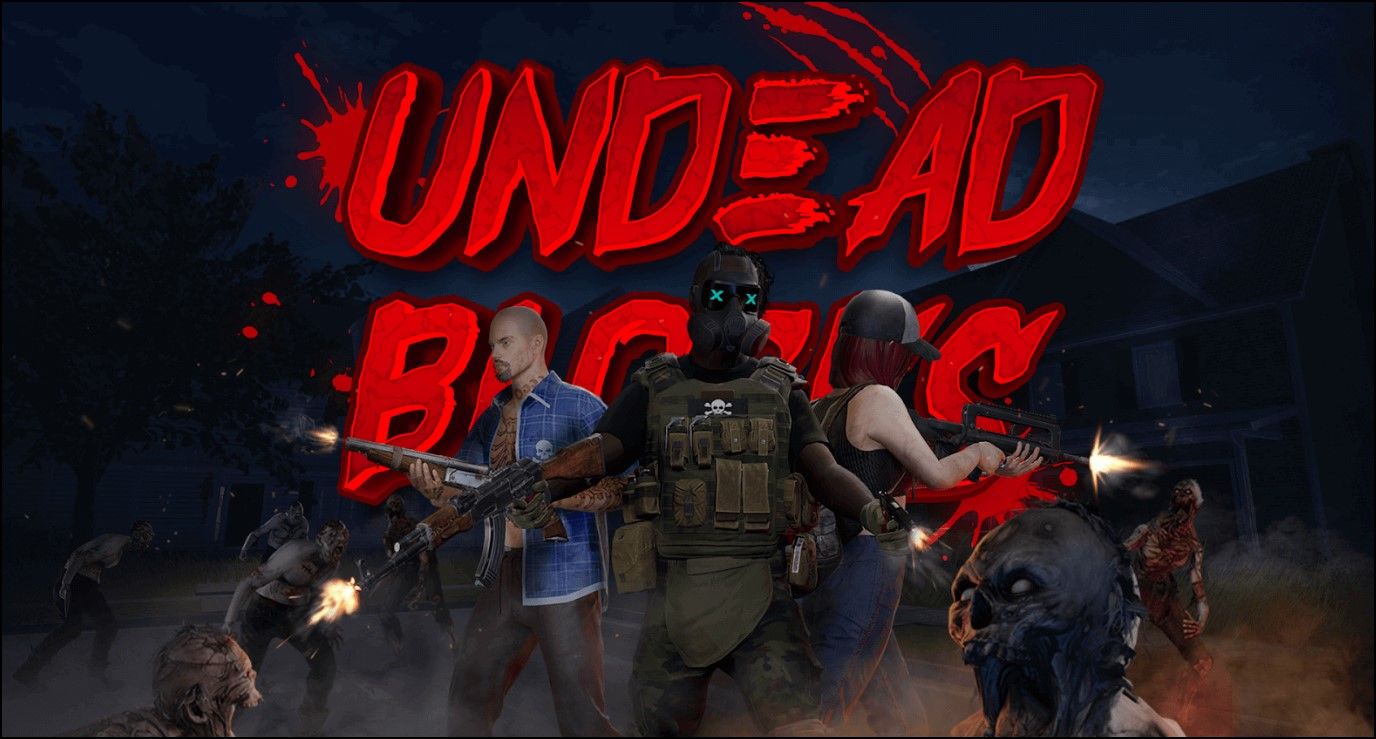 Undead Blocks | Image via Immutable
Undead Blocks | Image via ImmutableThe crypto aspect of Undead Blocks is deeply integrated into its gameplay. Players participate in tournaments and gameplay to earn ZBUX, a unique in-game currency. ZBUX can be used to collect rare weapon and character skins, enhancing the gaming experience. Additionally, players can equip their characters with powerful weapon NFTs (Non-Fungible Tokens), which can be upgraded to increase damage, ammo capacity, and accuracy.
One of the latest developments in Undead Blocks is the introduction of the soft launch phase, which is now live. This phase is a crucial step in enhancing the multiplayer zombie slaying experience. The game supports various gaming controllers, allowing players to choose their preferred method of gameplay, be it traditional controllers or mouse and keyboard.
The game also offers a play-to-earn model, where players can use Genesis and Apocalypse Weapon NFTs to earn Gold ZBUX. This can be swapped for the player's choice of cryptocurrency, adding a significant economic dimension to the game. The game's backing by notable partners like Animoca Brands highlights its potential for large-scale adoption among both crypto and non-crypto players.
8. 9Lives Arena
Another Enjin title that is still in testing ahead of its release is 1on1 fantasy PvP 9Lives Arena, which features different warrior classes doing battle in 'a competitive arena built around practice, preparation, and permadeath.'
This last point raises the stakes considerably: each warrior has nine lives and you lose a life whenever you lose a battle. Once your warrior loses their ninth battle, only their stats remain, commemorated on a statue. Meanwhile, you will have to set about training and nurturing a new champion.
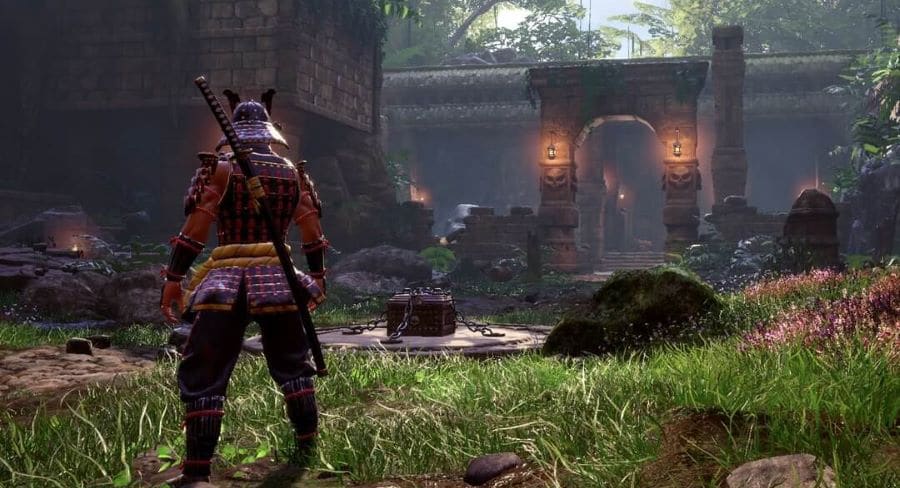 Bring it on: 9Lives Arena. Image via Enjin
Bring it on: 9Lives Arena. Image via EnjinOnce you’ve chosen your warrior from the likes of Viking, Gladiator, Samurai and others besides, you can customise them to your heart’s content. Weapons, skins, skills and more can be collected, while winning battles will unlock yet more rewards. A companion called Ooogy (yes, really) will help you as you train your warrior amidst the ruins of ancient Atlantis and successful warriors can get the chance to craft their own weapons which can then be sold or exchanged with other players.
9. Decentraland
Virtual worlds are big business in the blockchain world and, along with its rival The Sandbox, Decentraland is one of the dominant platforms. Built on Ethereum, it works in a similar way to its big rival, with users buying up land to develop and monetize as they see fit.
The Metaverse is divided into a limited number of LAND parcels, each represented by its own ERC-721 NFT. The in-game currency, meanwhile is MANA, an ERC-20 token that can be used to buy LAND and customize it.
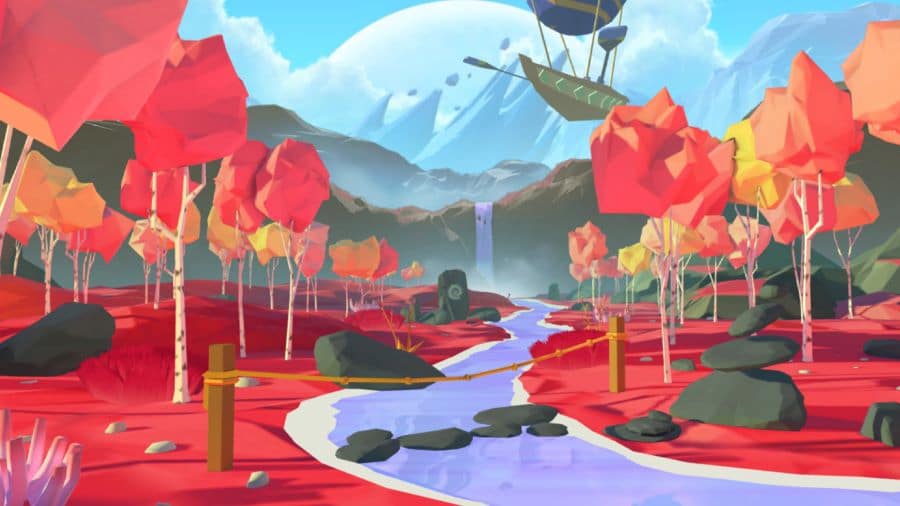 The hot pink fields of Decentraland. Image via Bitcoin News
The hot pink fields of Decentraland. Image via Bitcoin NewsThe whole Decentraland Metaverse is comprised of 90,601 individual plot of LAND, each of which is 100 square metres. Users can develop these as they wish, though large parts of the metaverse are divided into broadly themed districts. These districts came about from crowd sales of MANA tokens and are permanently owned by their buyers who cannot trade them.
Because Decentraland is a decentralized autonomous organization (DAO), MANA token holders have a say in the project’s governance and how the metaverse is run. MANA can be earned in-game or bought on a number of exchanges, though the best liquidity is, of course, to be found on Binance. The in-game marketplace has a vast array of things to spend it on.
Part of the genius of Decentraland is how it mimics real life while giving its players far more control than they’d get outside of the metaverse. LAND holders can sell advertising space, lease their digital real estate out to others or use it to host paid-for experiences, all of which is mostly beyond the scope of folks like us in the big bad world. Power to the people indeed.
Recent developments in Decentraland include the introduction of SDK 7, enhancing usability, performance, and portability for creators. The platform has also introduced Smart Wearables, offering unique experiences that travel with avatars. These updates highlight Decentraland's commitment to innovation and user empowerment, ensuring its position as a dynamic and influential player in the virtual world domain.
Check out Guy's video for a more in-depth look at the project.
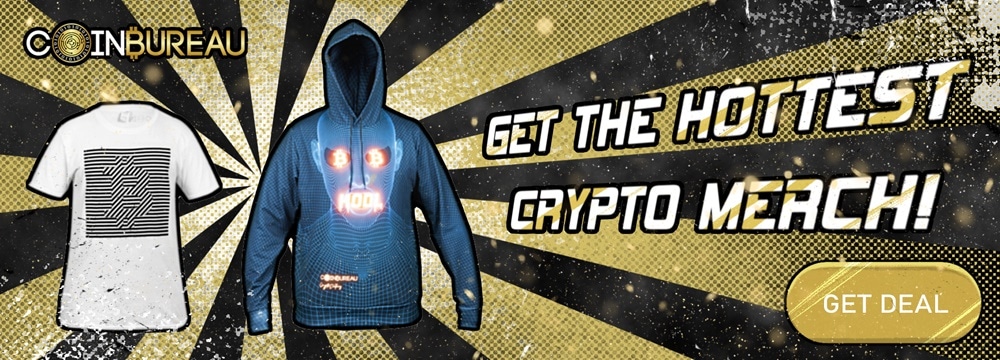
10. Blankos Block Party
Blankos Block Party is an innovative multiplayer universe that has captivated gamers with its unique blend of play, collect, and create elements. As of December 2023, the game, available in Early Access for PC and macOS, continues to thrive as a vibrant virtual block party where players can engage in various social party games.
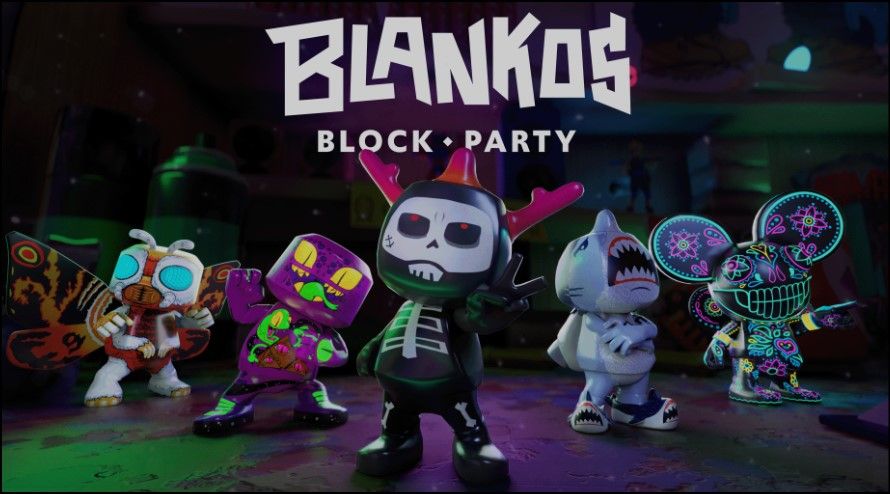 Blankos Block Party | Image via Epic Games
Blankos Block Party | Image via Epic GamesThe crypto aspect of Blankos Block Party lies in its approach to player ownership and the collection of digital assets. Players can collect and play with unique Blankos, which are customizable and can be leveled up with rare attributes. These Blankos function as digital collectibles and their ownership is recorded on the blockchain, ensuring authenticity and security.
Players are not just limited to collecting; they can also unleash their creativity by designing and sharing custom levels. This feature allows for the creation of almost anything imaginable, from intricate game maps to unique party spaces, which can then be shared with the community.
One of the latest developments in Blankos Block Party is its focus on enhancing social connectivity. The game encourages players to meet up in the Junction, a virtual space where they can show off their Blankos, participate in challenges, and hang out with friends online. This social aspect, combined with the game's creative and collectible elements, makes Blankos Block Party a standout title in the blockchain gaming space, offering a fresh and engaging experience to players worldwide.
An Expanding Universe
As developers and gamers wake up to the promise of blockchain, expect to see yet more titles appear over the coming months and years. The combination of blockchain and gaming should prove a win-win for both gamers and developers, with players getting more say in how their favourite games are run and maintained, as well as greater control over their assets and the chance to make money from their endeavours.
Devs too stand to benefit from this new gaming frontier. Funding will be easier to raise through gaming communities and token sales and auctions can be harnessed to drive the hype around emerging projects. The future’s bright, the future’s blockchain.



